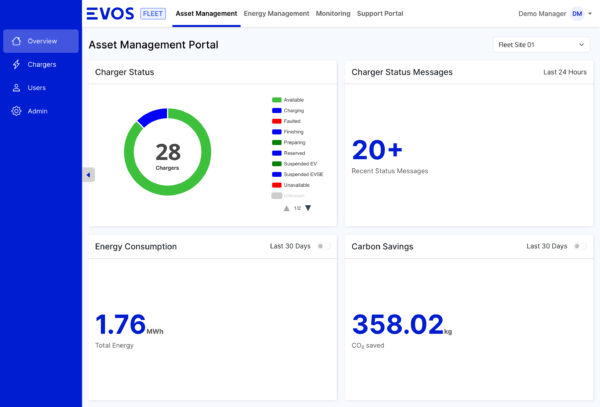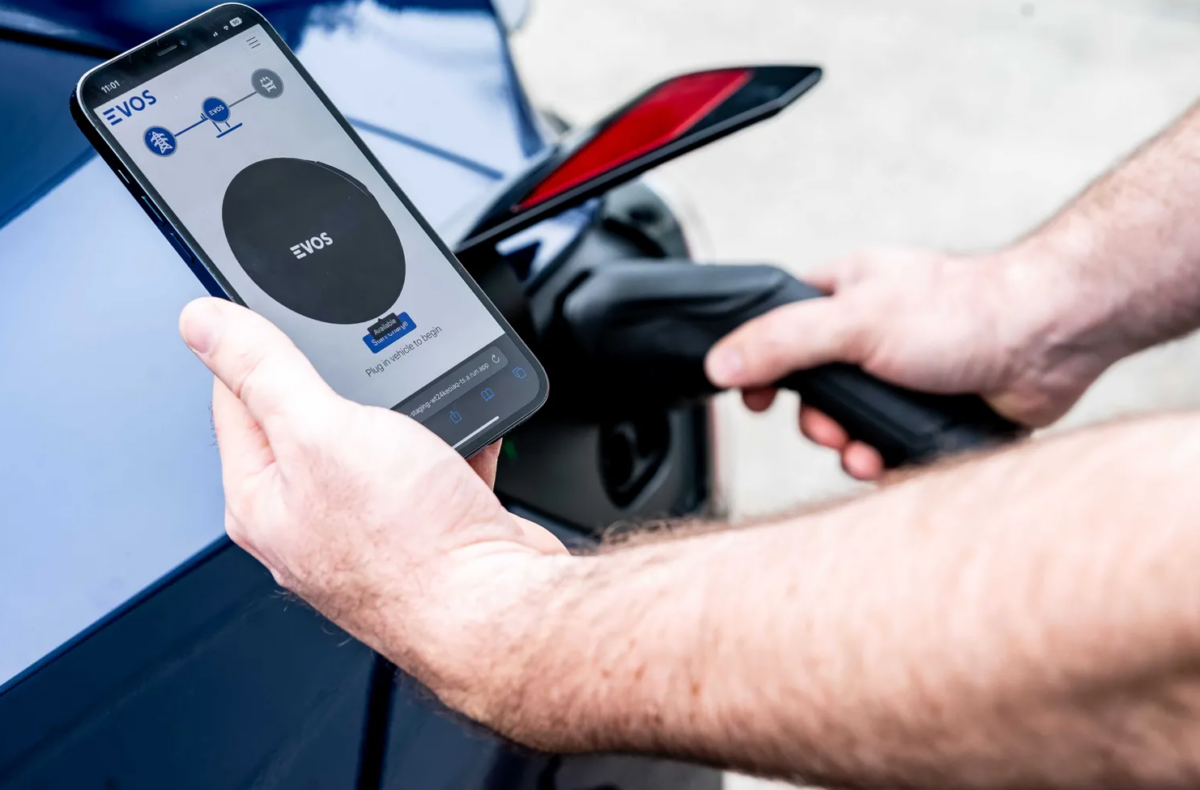Electric vehicle (EV) energy management and charging specialists Evos Energy has announced a new, scalable all-in-one platform designed to help businesses and their staff transition to EVs without having to upgrade their electrical infrastructure.
The Brisbane-headquartered company said its new EVOS-Fleet solution combines its existing charging hardware and software to simplify the charging process and help businesses manage their fleet energy costs.
Evos said the new system collects energy data from the EV, charger and the grid to make real-time, intelligent energy decisions to reduce the cost of power infrastructure and the cost of electricity.
Evos Chief Executive Officer Marcelo Salgado said the goal was to solve the challenges businesses and fleet owners face when transitioning to EVs.
“Because upgrading electrical capacity to any building is expensive and can take a long time, our EVOS-Fleet solution allows businesses to install more EV charging stations that intelligently share existing power between them, thereby helping businesses avoid costly upgrades to their building or site,” he said.
“Our platform can manage the individual power output of each charging station to ensure the maximum load set for a site is considered and, importantly, is never exceeded. But more than that, it helps drivers and business owners alike understand energy, how they use their vehicles, when to charge, and more, all within one platform.”
Evos said the platform can be configured to suit the unique needs of a given site and business and incorporates all aspects of the site’s electricity and charging infrastructure.
The platform can be used with the Evos Fleet 22 Home AC Charger, the SB7 or any of the new charging products Evos has in the pipeline.

Image: Evos Energy
Evos said the Fleet 22 charger delivers between 7.4 kW to 22 kW of charging power, has an operating temperature rating between -250C to 500C, can be installed as a single or three phase charger, and connects to 4G or Wi-Fi for remote operation.
The SB7 is a 7.2kW AC charger, which delivers 35 km of range for every hour of charging.
The EVOS-Fleet platform can also be configured with a number of the company’s energy management systems, including the dynamic energy balancing system (DEB) or capacity energy matching (CEM) system.
The DEB system enables an organisation to install a larger number of EV charging stations to the EV power circuit without increasing the electrical capacity. The system adjusts each charging station’s power output based on pre-configured options ensuring it never exceeds the power circuits limits or overload a site’s electrical circuit.
The CEM allows for the capacity of a building, or selected circuits, to potentially be used for EV charging, with real-time monitoring of a building’s power circuits and main power feed allowing Evos to safely over-subscribe the charging circuits and match total spare capacity to charging demand.
This content is protected by copyright and may not be reused. If you want to cooperate with us and would like to reuse some of our content, please contact: editors@pv-magazine.com.








By submitting this form you agree to pv magazine using your data for the purposes of publishing your comment.
Your personal data will only be disclosed or otherwise transmitted to third parties for the purposes of spam filtering or if this is necessary for technical maintenance of the website. Any other transfer to third parties will not take place unless this is justified on the basis of applicable data protection regulations or if pv magazine is legally obliged to do so.
You may revoke this consent at any time with effect for the future, in which case your personal data will be deleted immediately. Otherwise, your data will be deleted if pv magazine has processed your request or the purpose of data storage is fulfilled.
Further information on data privacy can be found in our Data Protection Policy.